
What Is a Constitution and Why It Matters
What is a Constitution, and why must every citizen understand it? In this episode of We the People by Newsreel Asia, we explain the meaning of a Constitution, how constitutionalism evolved from ancient law codes to modern democracy, and why the Indian Constitution remains central to protecting our rights, liberty and equality. From Aristotle and the Magna Carta to John Locke, Montesquieu and Dr. B.R. Ambedkar, this video traces the philosophical foundations of limited government, separation of powers, rule of law and social contract theory. If you want to understand democracy, governance, fundamental rights and the role of citizens in holding power accountable, this explainer is for you. The Indian Constitution is not just a legal document — it defines who holds authority, how power is exercised, and what limits exist on government. It safeguards fundamental rights, promotes justice and equality, and reflects core values such as secularism, democracy and fraternity. But a Constitution cannot defend itself. Constitutionalism survives only when informed citizens remain vigilant. Watch this video to understand why knowing the Constitution is a civic responsibility and how it protects you from arbitrary power in a democracy.
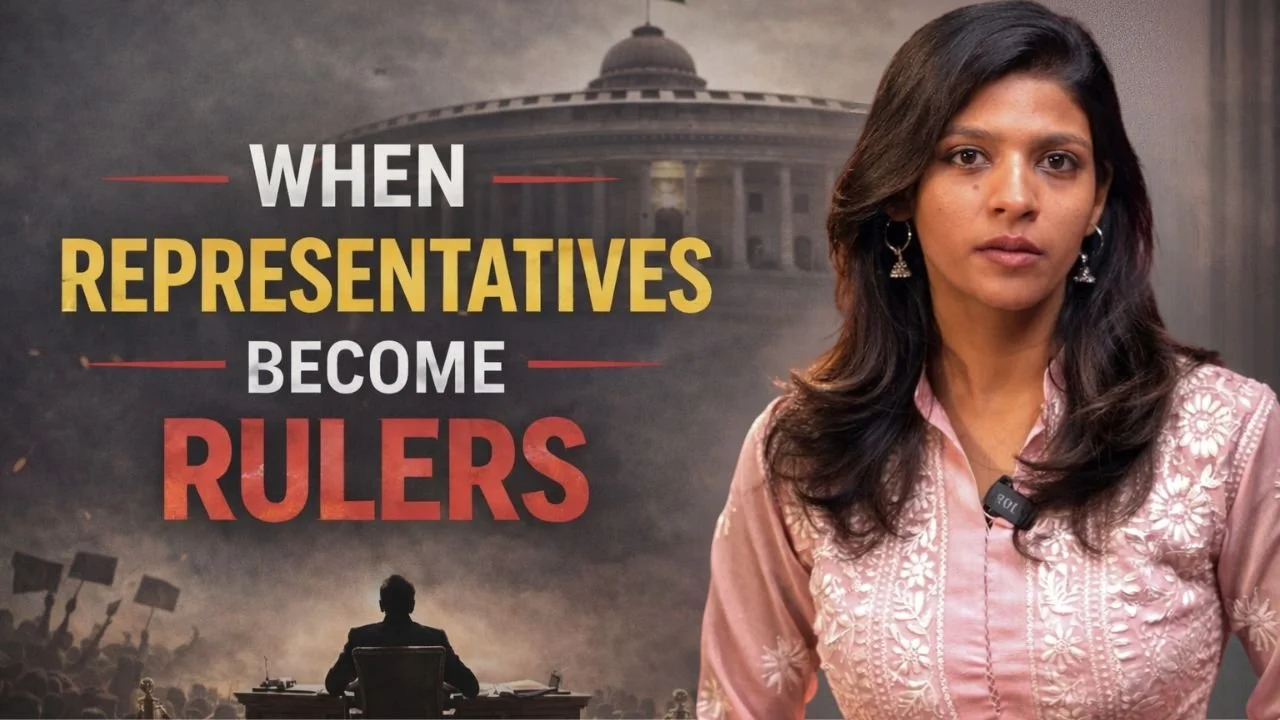
When Politicians Become Rulers in Democracy
In a democracy, power is meant to belong to citizens. Elected leaders and public officials hold authority only as a trust — to serve the public and remain accountable to it. But over time, that relationship can begin to feel reversed.
In this episode of We the People, Surabhi Singh examines how a system built on representation can gradually start to feel like control. Drawing on the ideas of John Locke, Jean-Jacques Rousseau, James Madison, Max Weber, Hannah Arendt and Michel Foucault, this explainer looks at how democratic decline often unfolds quietly — through distance, bureaucracy, silence and everyday normalization of authority.
When citizens withdraw from public life, when questioning power feels risky, and when elections are treated as the only moment of participation, public institutions can begin to serve those who hold office rather than those who created them.
This episode explores:
• How accountability weakens in everyday governance
• Why bureaucracy can create psychological distance
• How patronage replaces equal citizenship
• The role of social hierarchy in shaping institutional response
• Why democracy depends on continuous public presence — not just voting
Democracy does not disappear in one dramatic moment. It changes slowly. And often, it changes when citizens stop remembering that power begins with them.
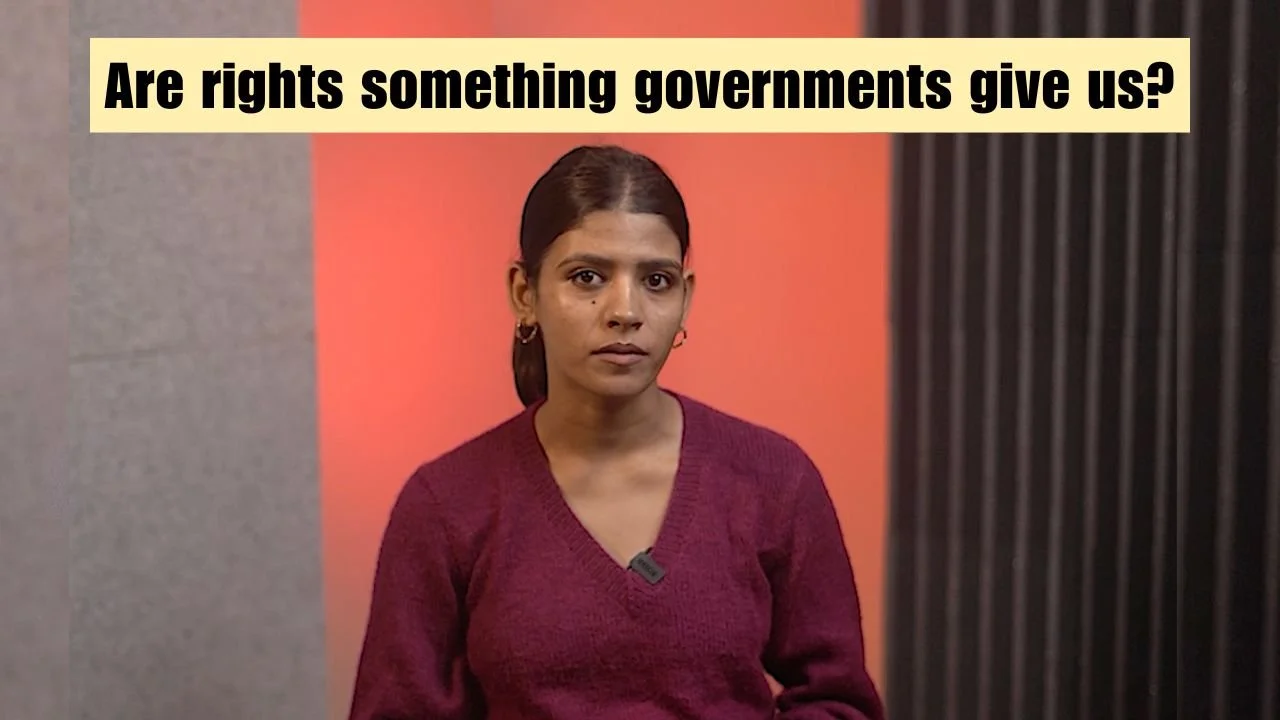
Rights Are Recognised, Not Granted
In this episode of We the People, Surabhi Singh breaks down a powerful but often misunderstood idea: rights are recognised, not granted. Using everyday examples and insights from political philosophy and constitutional law, this video explains why freedoms like speech, conscience, equality, and dignity don’t come from the state — they belong to us simply because we are human. From John Locke’s theory of natural rights to modern constitutions, the UN’s Universal Declaration of Human Rights, and thinkers like Ronald Dworkin, we explore: Why governments don’t “create” rights What it means for a constitution to recognise rights Why majority opinion cannot override individual dignity How this idea separates citizens from subjects And why protecting rights requires courts, institutions, and public resistance Understanding where rights come from changes how we see power, justice, and democracy itself.
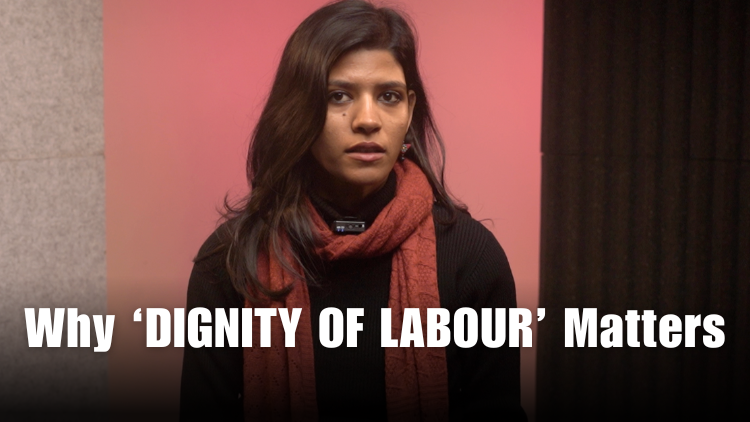
A Country Can't Grow Without Dignity of Labour
Surabhi Singh explains why the dignity of labour is not just a moral idea, but an economic necessity. From caste and class hierarchies in India to global examples like Germany’s vocational education system, this video explores how respect, fair wages, and legal protection shape productivity, skill-building, and economic growth. Drawing on ideas from thinkers like Émile Durkheim, George Akerlof, Gary Becker, and Dr B. R. Ambedkar, this explainer shows how undervaluing manual and skilled labour weakens economies—and why no society can truly grow while looking down on the people who keep it running. In this video, we discuss: What dignity of labour really means How social hierarchies affect work and wages Why disrespect leads to poor productivity The link between dignity, skill, and economic growth What India can learn from global labour systems
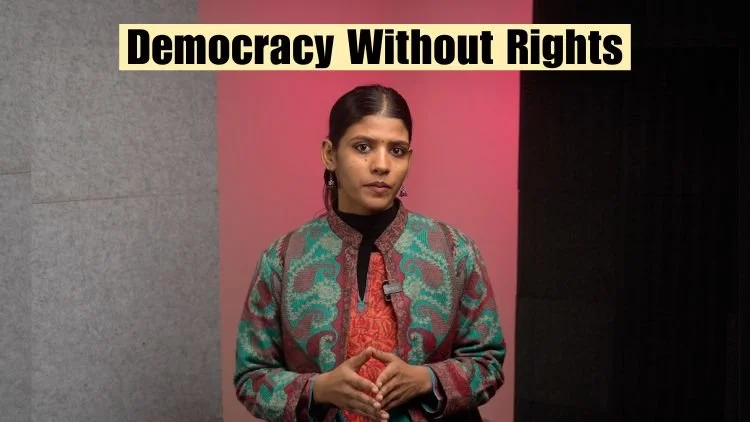
How Governments Use Law to Take Away Your Rights
In democracies, we expect rights to disappear loudly — through bans, crackdowns, or open repression. But in reality, freedom is often taken away quietly, through laws, procedures, and paperwork.
In this video, we explain how governments limit rights legally, without changing the Constitution or declaring dictatorship. From vague laws and emergency powers to selective enforcement and bureaucratic control, this is how freedom slowly erodes while everything still looks “normal.”
We explore:
How free speech, protest, and personal liberty are restricted using legal language
Why governments rely on terms like national security, public order, and morality
Carl Schmitt’s idea of the “state of exception” and why temporary powers become permanent
Hannah Arendt’s warning about bureaucratic control and legal normalisation
Real-world examples like UAPA and Section 163 of the Bharatiya Nagarik Suraksha Sanhita (BNSS), 2023
How selective enforcement turns the law into a weapon against dissent

How Government Distracts you from Important Issues
Why does bad governance continue even when problems are clearly visible all around us? In this episode, Newsreel Asia producer Surabhi Singh breaks down how distraction politics allows those in power to escape accountability. From unemployment, healthcare failures, and broken public services to culture wars, identity politics, and manufactured controversies, this video explains how attention is deliberately shifted away from real governance issues.

How is Bhutan Leading the World Spiritually?
Bhutan hosts the first-ever Global Peace Prayer Festival 2025 in Thimphu, held in continuation of the celebrations marking the 70th birth anniversary of His Majesty the Fourth King, Jigme Singye Wangchuck — the visionary behind Gross National Happiness. The two-week festival brings together spiritual leaders, monks, and practitioners from around the world to offer prayers for peace, compassion, and global harmony. The event features powerful rituals such as the Jabzhi Dhoechog, Bazaguru mantra recitation, and the Kalachakra Empowerment led by His Holiness the Je Khenpo. It also marks historic milestones, including the ordination of over 250 Buddhist nuns, symbolizing inclusivity and empowerment. Buddhism, founded by Siddhartha Gautama—the Buddha—is a spiritual tradition centered on compassion, mindfulness, and the path to liberation from suffering. Over time, it evolved into three major sects. Theravada, practiced mainly in Sri Lanka and Southeast Asia, preserves the earliest teachings and emphasizes individual enlightenment through meditation and discipline. Mahayana, widespread in East Asia, focuses on the Bodhisattva ideal—seeking enlightenment not just for oneself but for all beings. Vajrayana, prominent in the Himalayas including Bhutan and Tibet, uses advanced rituals, mantras, and tantric practices to accelerate spiritual transformation. Together, these traditions reflect Buddhism’s rich diversity while sharing the same core message: awakening through wisdom and compassion.All three major Buddhist traditions — Theravada, Mahayana, and Vajrayana — are coming together to participate in this peace prayer programme. Their unified presence makes the festival truly historic, as it brings diverse Buddhist lineages under one roof to offer collective prayers for harmony, compassion, and global peace. With Prime Minister Narendra Modi joining the celebrations, the festival stands as a profound expression of Bhutan’s spiritual heritage, unity, and its enduring message of peace to the world.
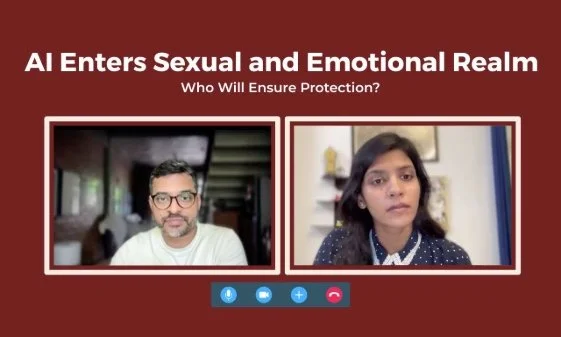
AI Enters Our Sexual and Emotional Realm | Who Will Ensure Protection?
Online technology, despite its many advantages and advancements, now faces a formidable challenge. How do we safeguard our emotional and psychological wellbeing? This is the third in a series of stories and interviews by Newsreel Asia journalist Surabhi Singh, looking into how social media platforms and messaging apps have increasingly become hubs for the circulation of harmful and illegal sexual content. Now, joining these digital spaces are AI platforms, adding a new and deeply complex layer of concern.

How Internet is Corrupting Young Minds | Cyberpsychologist Explains
What’s really happening to young minds on the internet?
In this powerful conversation, Newsreel Asia’s journalist Surabhi Singh speaks with Nirali Bhatia, a leading cyberpsychologist and counselling expert, about the dark side of India’s online world — where young boys are getting exposed to extreme sexual content, misogyny, and even fantasies involving their own mothers and sisters.

Who Was Nepal’s PM Oli Scared of?
Was Nepal’s PM K.P. Oli scared of Gen Z and the emerging young political leaders? In the guise of “regulating” apps, was his real aim to tighten control over the content being posted against him and his government?
When his administration banned 26 social media platforms overnight, it triggered one of the biggest youth uprisings Nepal has ever seen. What began as anger over losing WhatsApp, Instagram, and even LinkedIn quickly turned into a fight against corruption, unemployment, and years of failed governance. This wasn’t just a protest — it was a generational roar demanding change.
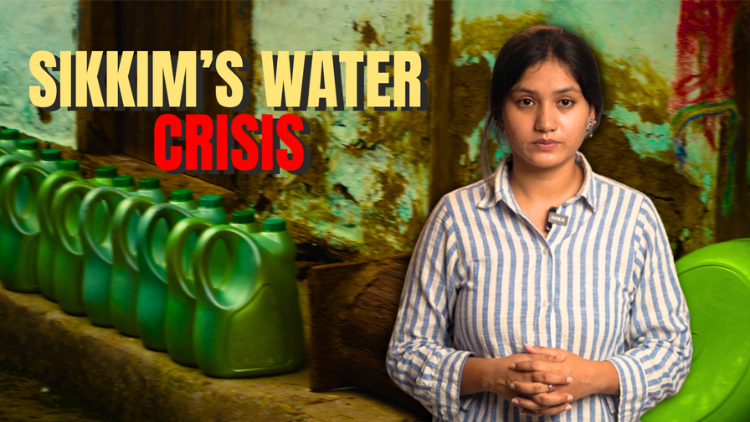
SIKKIM’S LOST SPRINGS - A Story of Water Scarcity and Survival
Sikkim, despite being rich in rivers, is facing a severe water crisis. In South Sikkim, where rainfall has dropped sharply, villagers like Durga have stepped in to fill the gaps left by failing systems. Once a farmer, he now works as an unpaid “barefoot engineer,” keeping water flowing when infrastructure cannot. This is the untold story of survival in the hills.

SIKKIM’S DISASTER OF NEGLECT : When People’s Voices Go Unheard
Despite Warnings by environment experts, development projects like dams are turning out to be deadly. Destroying mountains, flooded rivers, The flash floods, cloudburst are not just natural, they are man made disasters. Newsreel Asia’s producer Surabhi Singh travelled to Northeastern state of Sikkim to explore how a dam aggravated the flash floods of October 2023.

Why Sikkim Has the Highest Suicide Rate
Narsisus was addicted for 27 years and survived multiple suicide attempts. Today, he runs a modest community rehab centre. With no frills, only a few beds, basic meals and peer support, it offers a fragile but vital lifeline for those who walk through its doors. His journey, from the darkest moments to helping others avoid the same brink, unfolds in a state battling one of India’s deadliest mental health crises: Sikkim.
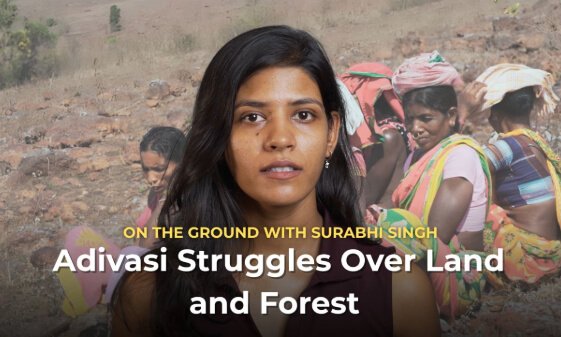
On the Ground with Surabhi Singh: Adivasi Struggles Over Land and Forest
Newsreel Asia producer Surabhi Singh has travelled across parts of central India, reporting from remote tribal areas in Chhattisgarh and Odisha. In this video, she shares what she saw on the ground – the continuing struggle of Adivasi communities to protect their land, forest and natural resources.

Food Insecurity of Odisha’s Uprooted Tribes
Mohanty Soren and Telenga Hasa, belonging to the Ho and Munda tribes, once lived in a region at the heart of the Simlipal Tiger Reserve in Odisha’s Mayurbhanj district. Just three years ago, their lives revolved around cultivation, surrounded by dense forest. Now, after being forced to vacate his land, Hasa lives 180 KM apart. Each time he returns to visit Soren in his former village, he is overcome with reflection and sorrow.
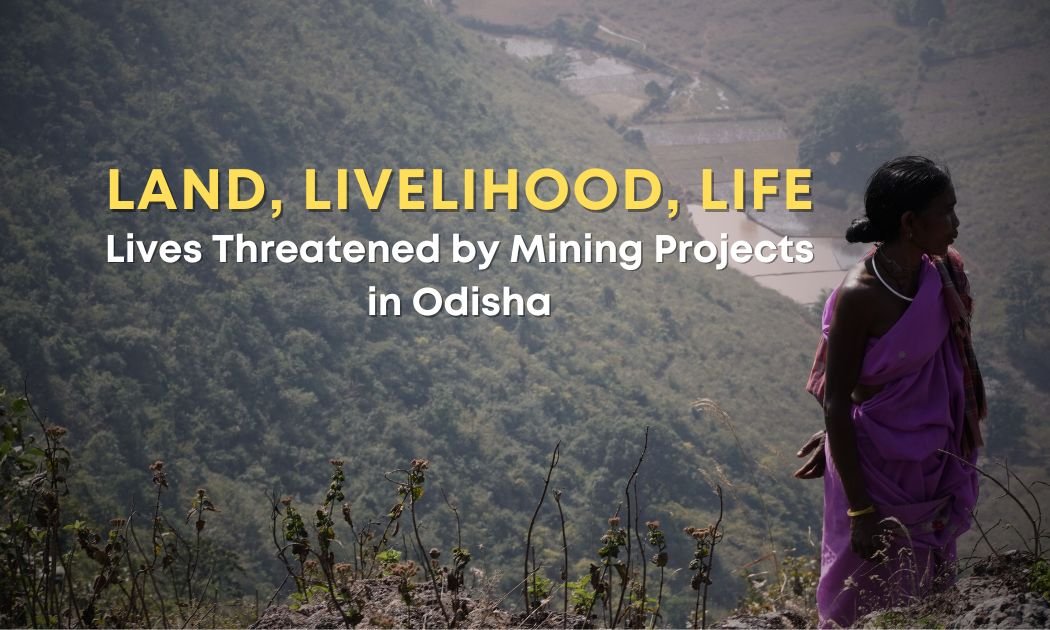
Odisha Tribals Demand Justice For Their Land and Livelihood
Umakant Naik, a resident of one of the many villages tucked away at the foothills of Sijimali Hills, is a firsthand victim of an ongoing tussle between local tribal villagers, a mining giant and the State. Known locally as Tijimali, the Sijimali Hills are home to nearly 50,000 residents, primarily from Scheduled Tribes and Scheduled Castes, whose lives are deeply connected to the region’s forest, water and land resources. The mountain streams provide drinking water, while timber and wood offer shelter and fuel. Agriculture and forest resources sustain their daily needs. The “Tij Raja,” a spiritual presence believed to dwell in the hills, serves as a cultural and spiritual anchor for the community. But this harmonious way of life is now at risk.
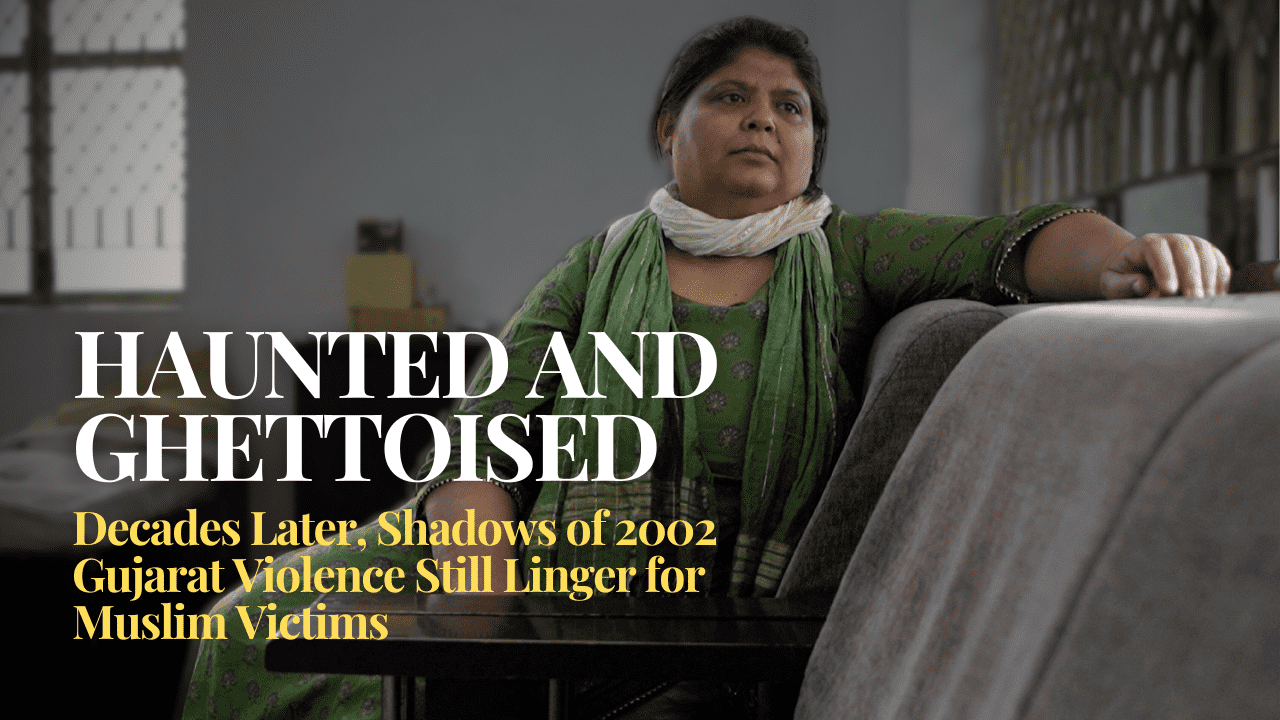
HAUNTED AND GHETTOISED: Prolonged Aftermath
Khairunissa, along with her siblings and parents, spent years living in a multi-religious and multicultural apartment in Ahmedabad, Gujarat. When communal tensions and targeted violence against Muslims erupted in the city on February 28, 2002, her family initially felt secure, confident that their neighbours would be able to protect them. But then Khairunissa saw a mob approaching their building. In an instant, their lives and circumstances changed dramatically. More than 22 years later, the lasting impact continues to affect them and hundreds of thousands of Muslims in the state.
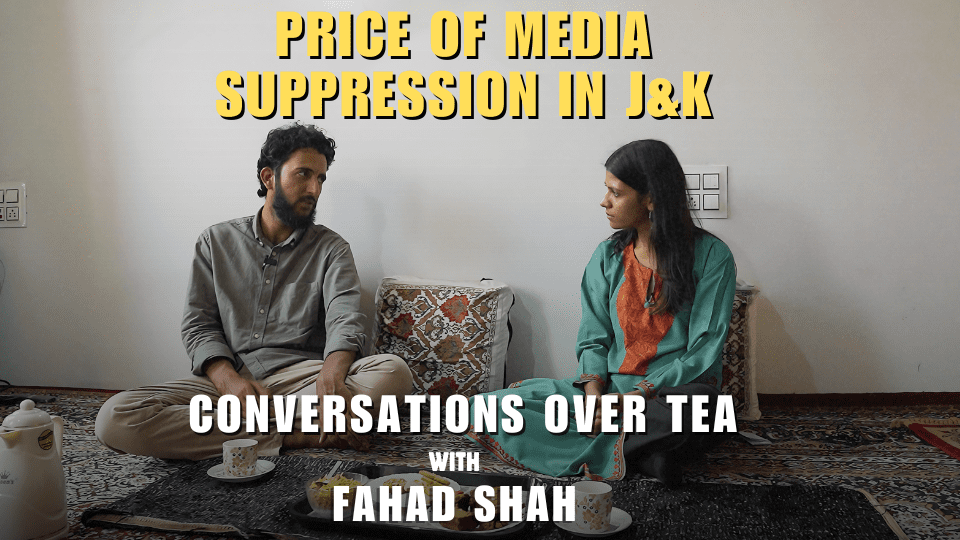
The Price of Media Suppression in Jammu & Kashmir
Fahad Shah was a student in 2009 when he launched Kashmir Walla, a modest blog that would grow into a vital voice in the fraught landscape of Jammu & Kashmir. Over the years, Shah’s work came to embody a passionate dedication to journalism—until 2022, when he was arrested under India’s stringent anti-terror laws, accused of 'propagating terror.' He is not alone. Since the Indian government's abrogation of Article 370, which revoked Jammu & Kashmir's special status, journalism in the region has become increasingly difficult. In this account, Shah reflects on his journey, the evolution of Kashmir Walla, and the 600 days he spent as a prisoner.

DEATH IN A RELIEF CAMP | The Impacts of Prolonged Displacement in Manipur
Neikochin is among the 67,000 individuals displaced by ethnic violence in Lamka, as local residents of Manipur's Churachandpur district prefer to call this region. A member of the minority Kuki-Zo tribe, she has taken refuge in one of the 115 relief camps established across the district. Basic supplies are available in the camps, but the extended displacement, combined with minimal government aid, has inflicted significant emotional and physical suffering. This crisis has resulted in the deaths of more than 100 displaced individuals, including many children. Neikochin’s 20-year-old son, Haovingly, was among those who died.
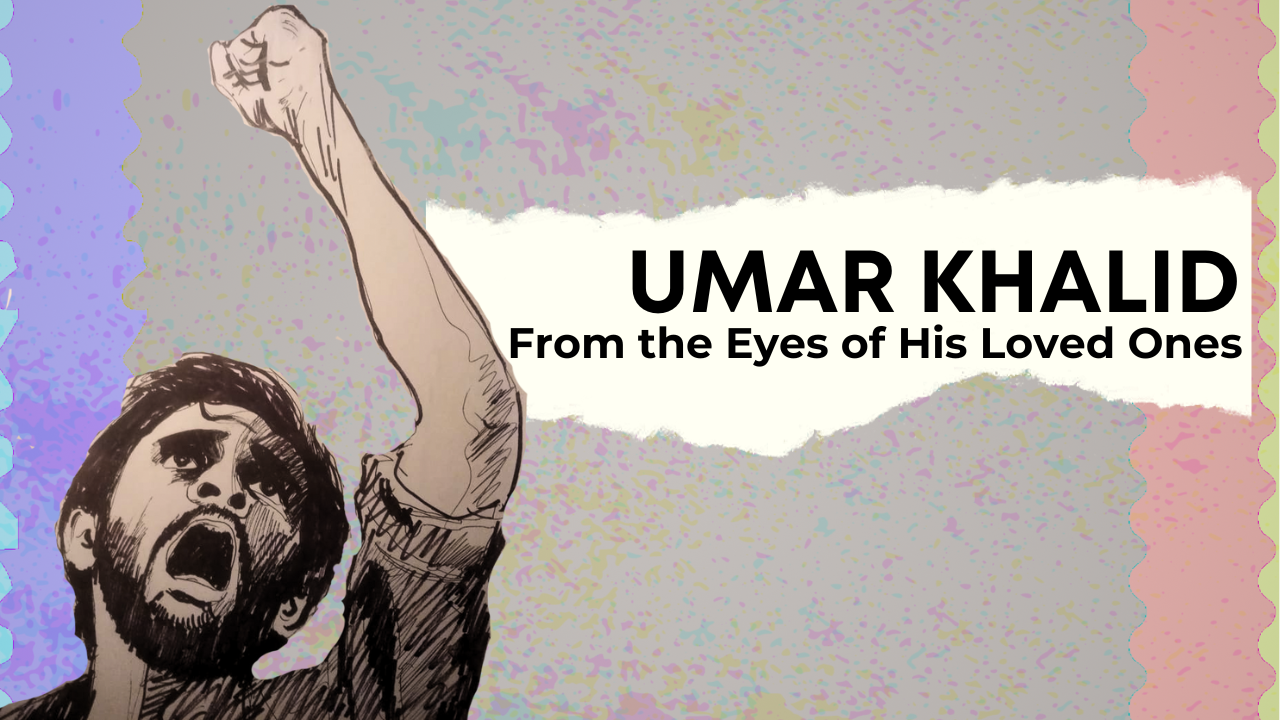
UMAR KHALID | From the Eyes of His Loved Ones
Umar Khalid, who once dreamed of playing cricket for India, now faces serious terrorism charges from the government. The vilification spurred by media trials reached its peak with a chilling assassination attempt. He's been in prison for 3.5 years as of March 2024, highlighting a worrying crackdown on dissent in India. This is his story, as told by his loved ones.
